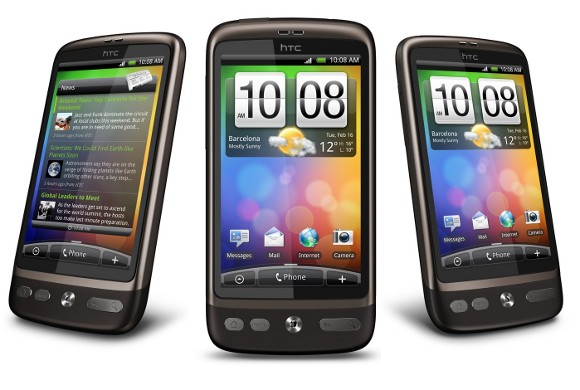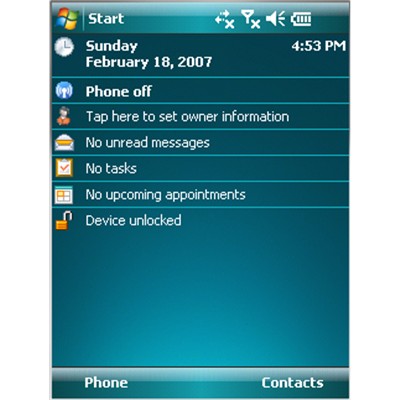I recently acquired a HTC Desire running Android 2.1 and it has significantly changed the way I use my mobile phone. The primary reason for this can easily be attributed to Android. I knew when selecting a new phone that the apps would make or break it.
So why not go with iPhone? Because HTC make the best hardware on the market.

[more]
Hardware vs Software
I have been a fan of HTC handsets for several years now, as they regularly push the hardware limits of mobile devices, squeezing in just that bit more functionality than their competitors; however more often than not the software was a letdown, not living up to the potential of the hardware, even in things as crucial using it as a phone.
Apple blew the market away; the hardware is not as groundbreaking, but it made sure that the OS fully supported the hardware functionality, concentrating on the usability of the product in a market that was saturated with terrible UI design.

A few months later Android launched.
Apps
The reason my mobile usage has changed is largely because of Marketplace. My old HTC Diamond, has amazing hardware, but runs Windows Mobile and the apps are sold in a more traditional software business model (as you might expect on a Microsoft platform) with a price tag to match. Apple created the AppStore, as a single point for all apps, accepting micropayments through iTunes.
Android has easy access via their Marketplace and also utilises a lot of the other successful Google applications like Gmail and Google Calendar, meaning for me it is taking the tools I’m already using and seamlessly putting them in my pocket. I could check my Gmail on my old Diamond, but it was pull not push and didn’t support HTML; now it is easier to use my phone than it is my PC.
Apps are purchased through Google Checkout with a 24 hour refund policy, so rather than enforcing heavy restrictions on the apps available as with iTunes, users can try and review apps without cost for 24 hours.
Widgets
Android has a desktop like space which you can customise with widgets, which means you don’t need to launch applications to get to useful information, such as your appointments, photos or if your train is on time.
HTC and Android
HTC have a history of taking off the rough edges of the OS interface with HTC Sense. This made my old HTC Diamond very usable and it hid a myriad of Microsoft’s sins behind smooth animation and gradient interface menus. With Android this work isn’t needed, allowing them to concentrate of creating some great looking apps and widgets; that means your phone is ready to run straight from the box, no need to go hunting through the Marketplace for Facebook or Twitter apps, just sync and go.
Development
Fragmentation has always made mobile development difficult and while neither platform is particularly easy to develop for, Apple have recently taken the step of excluding apps that have been compiled from Flash, which could reduce the number of developers with the necessary skills to create apps. Android is Open Source and Java based as opposed to Apple’s Objective C, and there is an increasing market of tools to help compile for your desired OS. Apple no longer has the largest market share, although the expected release in June of a new handset will most likely boost iPhone sales again.
The cost of submitting an app is considerably cheaper for Marketplace than it is any other platform, and the volume of apps is increasing as the Android adoption grows.
Handsets and Networks
Apple has at last allowed networks other than O2 sell the iPhone, but the hardware doesn’t change until Apple release new version. Android is available on many different handsets, so you can pick one that best suits your specific needs. HTC are constantly developing new handsets so you can always get the most cutting edge technology on the market.
Insightful. The relative ‘openness’ of the Android platform – both for developers and for customers should ultimately lead to a slow demise in the popularity of the Apple “iTell you what’s good for you”. History has told us that closed platforms seldom win the day, and there should be no reason why the smartphone market will be any different.
Comments are closed.